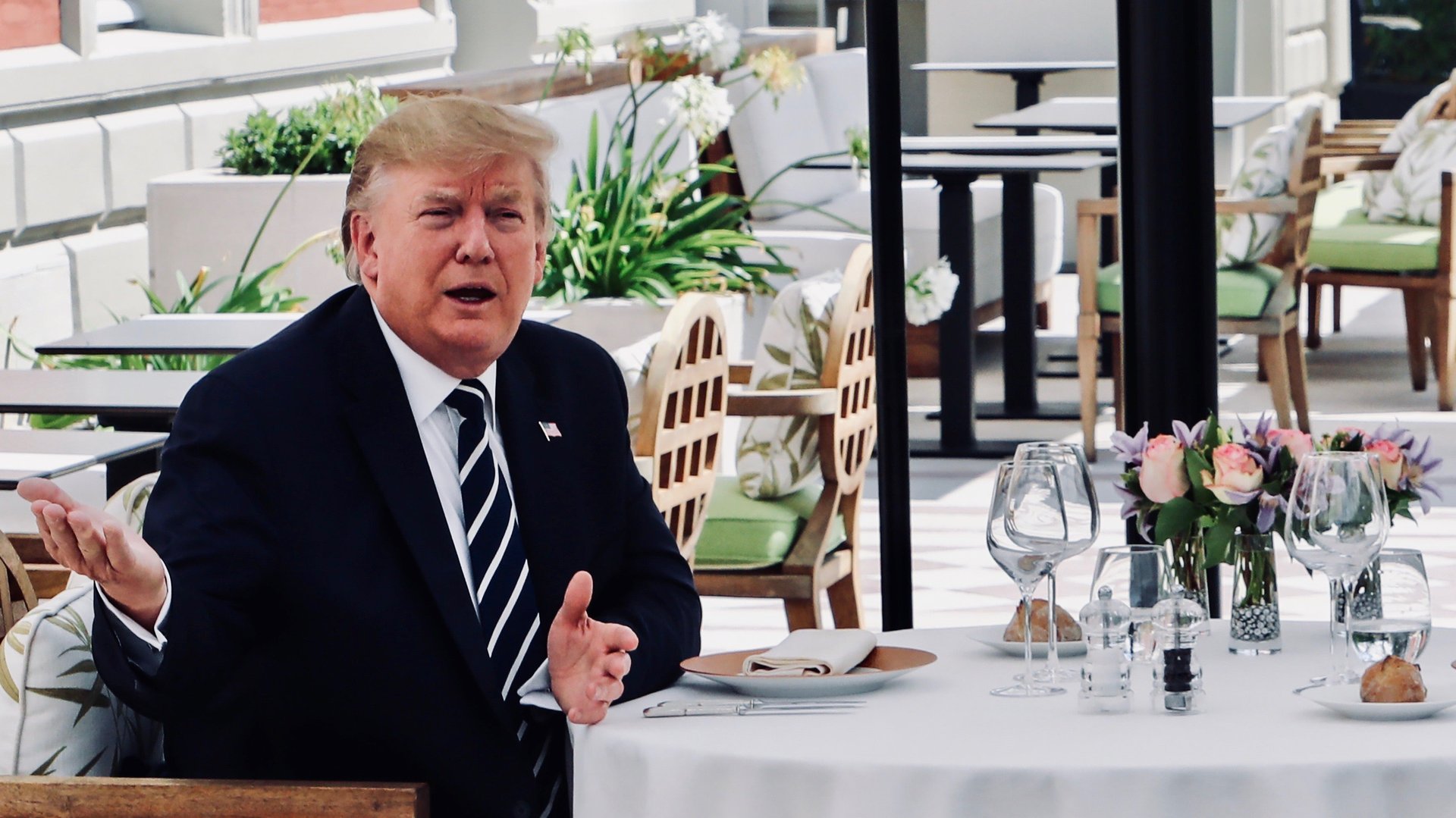Trump cited this law to order US companies out of China. It isn’t that simple
Grab your gavel. The case is closed. Or so said Donald Trump in a tweet last night, ahead of today’s G7 summit in France, explaining what gives him power to order US companies to “start looking for an alternative to China,” as he did yesterday in an earlier tweet.


Grab your gavel. The case is closed. Or so said Donald Trump in a tweet last night, ahead of today’s G7 summit in France, explaining what gives him power to order US companies to “start looking for an alternative to China,” as he did yesterday in an earlier tweet.
For all of the Fake News Reporters that don’t have a clue as to what the law is relative to Presidential powers, China, etc., try looking at the Emergency Economic Powers Act of 1977. Case closed!
— Donald J. Trump (@realDonaldTrump) August 24, 2019
The law he cites is designed for pariah states, not trade partners. US Code Title 50, chapter 35, addresses “war and national defense” and it “may only be exercised to deal with an unusual and extraordinary threat with respect to which a national emergency has been declared.” The law also provides that the president must consult with Congress “in every possible instance…before exercising any of the authorities granted by this chapter and shall consult regularly with the Congress so long as such authorities are exercised.”
In other words, the case isn’t quite closed for at least a couple of reasons. First, Trump would have to consult with Congress, which he doesn’t appear to have done, and representatives may not see the need for declaring a national emergency. While the president has made it clear that he believes in expansive executive powers, it’s not yet evident that Trump can be the plaintiff, prosecutor, judge, and jury when deciding legal issues with severe economic and geopolitical implications.
Second, if the president wasn’t so quick to tweet national policy, the situation wouldn’t be so severe, giving rise to the question—is he the national emergency? Yesterday, for example, Trump fired off a series of tweets announcing that he was hiking tariffs on Chinese products (even after his aides had just saved Christmas from the president’s policies by delaying increases to ensure a merry American holiday).
Then, the White House issued an official statement that read like the tweets cobbled together. It said the same things, with the same dramatic capitalizations, including accusing China and other countries of hundreds of billions of dollars worth of trade and intellectual property theft.
The president is in France today for the meeting with leaders of G7 countries, some of which are already suffering economically from the effect of Trump’s trade war on the global economy. The German economy, for example, appears to be headed toward a recession and analysts say the trade war isn’t helping.
Today, European Council president Donald Tusk, attending the G7 meeting as well, said at a news conference that escalating trade tensions could lead to a global recession: “For me it’s absolutely clear that if someone, for example…the United States and president Trump, uses tariffs and taxation as a political instrument…this confrontation can be really risky for the whole world.”